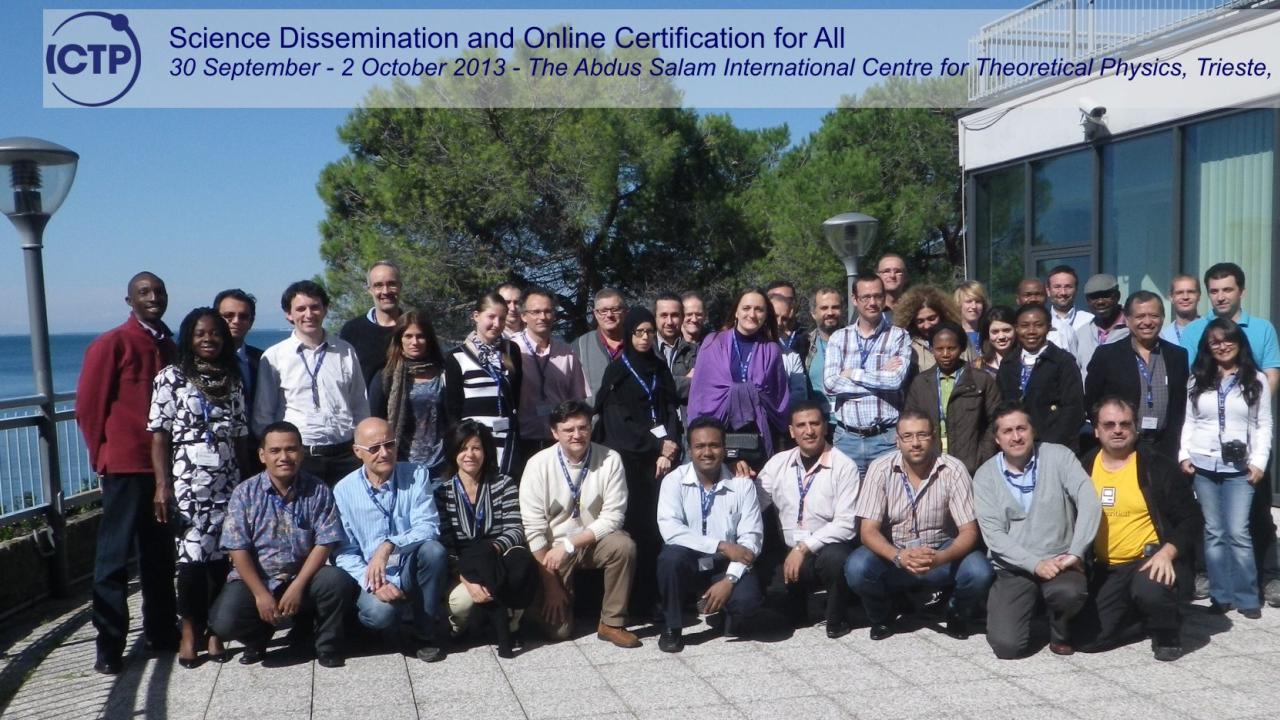
Your living room or work desk could well be your next classroom. Online education platforms are slowly becoming part of mainstream education systems, and ICTP is keeping up with the changing education landscape and introducing the online education concepts to developing countries through activities such as the recent workshop on "Science Dissemination and On-line Certification for All".
Organised by ICTP's Science and Dissemination Unit (SDU), the activity, which ran from 30 September to 2 October, introduced participants to online tools that can create and disseminate educational resources to a large audience worldwide.
Participants were introduced to topics such as massive on-line open courses (MOOCs), infrastructure, design and technological issues with video capturing, video course development and cultural issues in video learning systems, asynchronous and synchronous web casting systems and creative uses of video and the role of rich-media in science.
Michael Schatz of the Georgia Institute of Technology's School of Physics, US, who offers an introductory online physics course, was one of the lecturers at the activity. Schatz says he wants to use MOOC platforms to break down barriers between classrooms, lab-work and real world examples of physics. For example, the laboratory component in his introductory mechanics course involves students using commonplace technology, such as a webcam or a digital video camera, to record examples of motion (e.g., a game of basketball) and then using simple, open-source software to study various aspects of motion in the recorded clips. "The world is your laboratory, " he says.
Schatz believes that the idea of MOOCs will be especially attractive to ICTP, which already uses online platforms such as ICTP.tv and DxD.tv to deliver online lectures to scholars throughout the world. "ICTP has this affiliate structure with associates (from many developing countries) coming to the Center. [These associates] have home institutions where they themselves are educators; the associates have face-to-face interactions with their students, and one can start thinking about how online content can help them improve these interactions and raise the level of education in their home institutions. In this regard, the future is bright and ICTP could really have a huge impact."
Apart from lectures, the activity also included presentations of case studies and projects on the impact online and mobile technologies are having on education. The take-away message was that online and mobile platforms will bring about a change in education systems, and effectively harnessing them will not only increase access to education but also augment conventional classroom teaching.
















